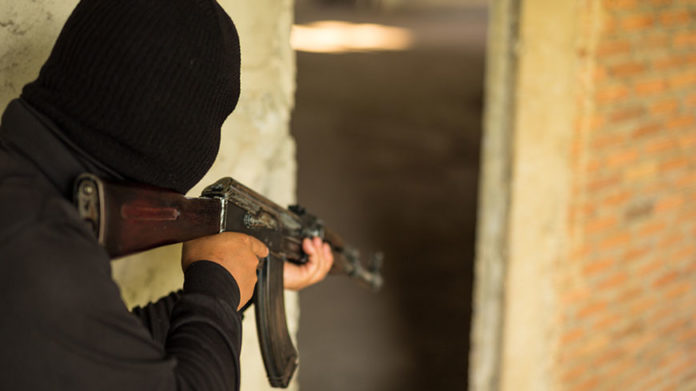Ghanaians have been urged to look beyond people’s outfit and language when watching out for elements of violent extremism in their localities.
According to Executive Secretary of the Upper East Regional Peace Council, Ali Anankpieng, many tend to associate violent extremists with people from neighboring French-speaking countries and those who donned mostly Islamic attire.
But this, he said, is a misconception and must be discarded.
He explained that violent extremism is not peculiar to a particular group of people and thus, the public must be opened-minded in their quest to stay on guard against activities of extremists.
“Some people believe that somebody speaking French from Burkina Faso is a potential terrorist but that’s not the case. Or somebody wearing a turban is a potential terrorist or even someone being a Muslim is a potential terrorist. But as far as violent extremism is concerned, it is not exclusive to a particular group because we have Muslims, we have Christians, we have racists who are terrorists. There are others who hate certain segment of the population like women and have taken terrorism action against them,” he said on State of Our Nation.
Mr. Ali Anankpieng was speaking as part of a public sensitization campaign against violent extremism embarked on by the Catholic Relief Service.
Ghana has been on alert since 2021 as its neighbours continue to suffer attacks from violent extremists.
As part of measures to prevent elements of the extremist groups from infiltrating the country and launching similar attacks, government initiated the #SeeSomethingSaySomething campaign to concertize the public to look out for elements they suspect to be extremists and report same to the appropriate quarters.
But Mr. Anankpieng said although the campaign slogan appears catchy and understandable, many are oblivious of what to watch out for and where to report to if they spot a suspicious character within their communities.
“Where we have done education, they have gotten right on what to look out for. But where we haven’t done education, they are missing the point”.
He added, “In Ghana, we believe that the slogan #SeeSomethingSaySomething is so catchy and easy to understand. But there’s a lot in it that should be made understandable to the local community. For example, what should you see for you to say it’s suspicious and even if you know it’s suspicious, how do you report it. These are things that most people don’t know”.




